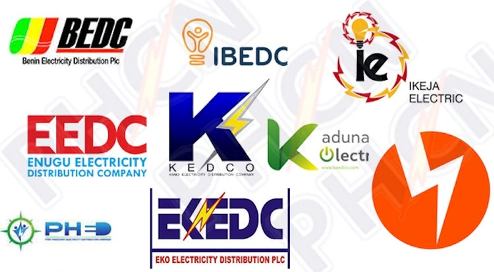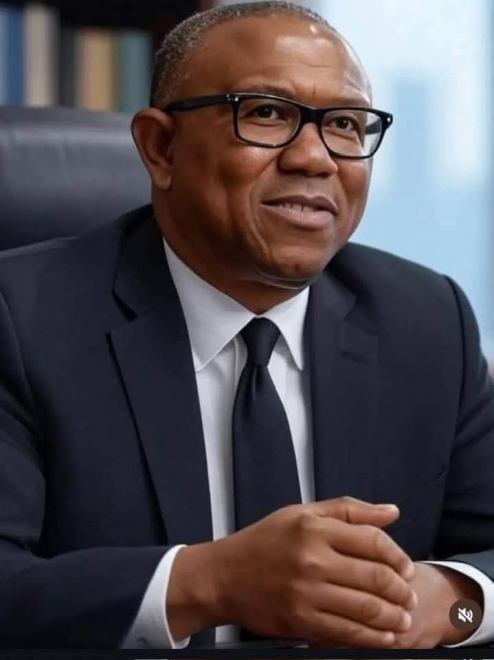
LAGOS FEBRUARY 23RD (NEWSRANGERS)-Nigerian Electricity Distribution Companies (DisCos) have kicked against the federal government’s threat to review and possibly revoke their operating licences due to poor electricity supply in the country, THE WHISTLER has learnt.
The Minister of Power, Saleh Mamman, had while briefing State House correspondents at the end of the Federal Executive Council (FEC) on Wednesday blamed the DisCos for poor electricity supply to consumers.
Mamman had said the federal government was considering a proposal to take over power supply from the DisCos and hand it over to a German firm, Siemens. The minister also said the government had signed a memorandum of understanding with Siemens that would see the firm taking full charge of power generation, transmission and distribution in the country.
THE WHISTLER spoke to the Director, Research and Advocacy, Association of Nigerian Electricity Distributors (ANED), Sunday Oduntan, who said the DisCos would not hesitate to take legal action to protect the interest of investors who invested $1.4 billion in the sector should the government go ahead with the plan.
Speaking in a phone interview with THE WHISTLER on Thursday, Oduntan said the DisCos and the federal government signed a “very strong contract” with clauses that protect investors.
He said, “we have everything in the eye of the law that will make us fight for our rights, but we will never fight our own government. We will cooperate with the government. But if anybody, no matter how highly placed, should go against the law, we shall take appropriate legal steps.”
Oduntan said, “If it is true that the minister said they are going to take over the DisCos and hand it over to a single company called Siemens, that would be very interesting, but we don’t want to be speculative. We are waiting and we are watching to see how it goes.
“Things have to be done according to the law, and we believe as an industry that the industry must prevail.”
Contrary to the minister’s claim that the problem with electricity supply to Nigerians lies with the DisCos, Oduntan said there were “inherent” problems facing the power sector, but that some people had chosen to “play politics” rather than address the challenges.
“We do not think that we should continue to plunge Nigerians into darkness,” he said, adding that “Because if we fail to do what we are supposed to do and all we are doing is pointing accusing fingers, or looking for scapegoats, that would not help the industry.
“Remember my investors paid in cash the sum of $1.4 billion for these assets (and) nobody is sensitive enough to pay that sum of money for anything and want that business to fail.
“So, there are inherent problems that people who should know, ought to know, but if people choose to be playing politics with this power sector, then that would be very unfortunate for the country,” he said.
Probed further to give examples of the inherent problems facing the sector, Oduntan said: “We have a very huge shortfall in the system, the industry and the whole of the value chain.”
He said, “When you talk about the power sector, you must remember there are three entities in that value chain. We have the generation companies which are private (the producers), we have the transmission company which is the transporter (that takes the power from the point of generation to the point of distribution) and we have us, the industry that I represent, which are the distribution companies. Those are the ones the consumers know, those are the ones everybody abuses, those are the ones that take the bullet.”
Where The Power Problem Lies
While the power minister claimed that the DisCos had been shortchanging the federal government, saying “they collect 3,000 megawatts and pay for only 1,000 megawatts,” Oduntan said it was the DisCos that had been incurring losses in the value chain.
“The problem is that we cannot be selling this product at a cost that is below the buying price. We are buying at N80.88 and the law here says we should be selling at N31.56 and people expect you to perform magic.
“You can’t continue to sell below the cost price and be efficient. People will be cutting corners if you are selling below the cost price. That is the issue.
“The problem with Nigeria is that we are a people who are just trying to look for an easy way out. The government needs to understand that.”
Asked if the DisCos would support government’s handover of the power sector to Siemens to solve the power problem, he said: “You think I should support illegality? There is something in law called sanctity of contract. That speaks to the fact that when you sign a contract with anybody or party, you must see it a sacrosanct thing and you must obey the wording of the terms of that contract.”
On if the DisCos would take legal action against the government should it go ahead to hand over the power sector to the German firm, Oduntan said: “I’m not going to say anything more than this for now, until I see exactly what was said and who said it.”
“We shall wait for the appropriate thing from the government before we issue our response.”
Meanwhile, Mamman had also told State House correspondents that Nigeria’s current generating capacity was about 13,000 megawatts, while about 7,000 megawatts was transmitted, but that the problem was with the distribution.
The minister said, “The distribution, in turn, receives only 3,000 megawatts. Because of technical and commercial reasons, they cannot contain the whole power that has been generated.”
On the minister’s claim that the DisCos lacked the capacity to distribute what is being transmitted, Oduntan said: “That’s completely false. When we had about 5,500 megawatts, we distributed all.”
Oduntan further said Siemens itself had previously carried out a study and came up with a report that Nigerian DisCos were capable of distributing 11,000 megawatts.
He said the Transmission Company of Nigeria (TCN) also conducted a strength test in 2015 and discovered that the DisCos could distribute about 6,0000 megawatts.
“So, nobody can say we distribute just 3,000. We cannot manufacture, we cannot generate, and we cannot transmit. We can only distribute what is generated and transmitted to us,” Oduntan added.







